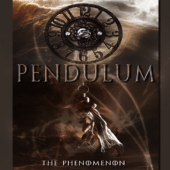Breaking Down What’s at Stake in Music’s AI Lawsuits

For a little over a year, since the Fake Drake track bum rushed the music business, executives have been debating whether generative artificial intelligence is a threat or an opportunity. The answer is both — creators are already using AI tools and they already compete with AI music. But the future will be shaped by the lawsuits the major labels filed two weeks ago against Suno and Udio for copyright infringement for allegedly using the labels’ music to train their AI programs.
Like most debates about technology, this one will be resolved in real time — Internet start-ups tend to believe that it’s easier to ask forgiveness than to get permission. Although neither Suno nor Udio has said that it trained its program on major label music, the label lawsuits point out that both companies have said that using copyrighted works in this manner would be “fair use,” a defense for otherwise infringing conduct. They’re not admitting they did it — just defending themselves in case they did.
Trending on Billboard
Whether this qualifies as fair use is well over a million-dollar question, since statutory damages can reach $150,000 per work infringed. The stakes are even higher than that, though. If ingesting copyrighted works on a mass scale to train an AI is allowed under fair use, the music business could have a hard time limiting, controlling, or making money on this technology.
If it’s not, the labels will gain at least some control over these companies, and perhaps the entire nascent sector. There are other ways to limit AI, from legislation to likeness rights, but only copyright law has the kind of statutory damages that offer real leverage.
Although neither Suno nor Udio has issued a legal response, Suno CEO Mikey Shulman released a statement that said the labels had “reverted to their old lawyer-led playbook.” The obvious reference is Napster, since most people believe that in the late ‘90s the music business saw the future and decided to sue it.
That’s not exactly what happened. The major labels knew that the future was digital — they lobbied for the 1995 Digital Performance Right in Sound Recordings Act, which ensured that streaming services had to pay to play recordings in the U.S., even though traditional radio stations don’t. They just didn’t want peer-to-peer services to distribute their content for nothing — or to have to negotiate with them while they were doing so. In July 2000, three months after the major labels sued Napster, leading executives sat down with the company to try to figure out a deal, but they couldn’t agree; the labels negotiated as though Napster needed a license and Napster negotiated as though it didn’t. In the end, after a decade of lawsuits and lost business, creators and rightsholders established their right to be paid for online distribution and the music sector began recovering.
And here we are again: History isn’t repeating itself, but it seems to be rhyming. If the labels negotiated with Suno and Udio now, how much would those companies be willing to pay for rights they may or may not need? It’s easy to make fun of either side, but it’s hard to know how much to charge for rights, or pay for them, before you even know if you need them.
These lawsuits aren’t about whether creators and rightsholders should embrace or avoid AI — it’s coming, for good and ill. The question, in modern terminology, is whether the embrace will be consensual, and under what terms. Most creators and rightsholders want to do business with AI companies, as long as that actually means business — negotiating deals in something that resembles a free market.
What they’re afraid of is having technology companies build empires on their work without paying to use it — especially to create a product that creates music that will compete with them. That depends on the outcome of these lawsuits. Because if you don’t have the right to say no, you can’t really get to a fair yes.
A couple of weeks ago, at a culture conference organized by the German recorded music trade organization, I heard German Justice Minister Marco Buschmann put this as well as anyone I’ve ever heard. “The moment people have the opportunity to say ‘No’ and to enforce this ‘No,’ they gain a legal negotiating position,” he said in a speech. (Buschmann also makes electronic music, as it happens.) In the European Union, rightsholders can opt out of AI ingestion, which is far from ideal but better than nothing.
What happens in the U.S. — which often shapes the global media business — might hinge on the results of these lawsuits. There are two dozen copyright lawsuits about AI, but these look to be among the most important. Some of the others are mired in jurisdictional maneuvering, while others simply aren’t as strong: a lawsuit filed by The New York Times could involve a different fair use determination if the ingested articles are used as sources but not to generate new work. These cases are straightforward, but they won’t move fast: It’s easy to imagine the issue going to the Supreme Court.
Despite the high stakes — and what will almost certainly be a rap beef’s worth of sniping back and forth — determinations of fair use involve a considerable amount of nuance. Fair use makes it legal in some cases to excerpt or even use all of a copyrighted work without permission, usually for the purposes of commentary. (An iconic Supreme Court case involved 2 Live Crew’s parody of the Roy Orbison song “Oh, Pretty Woman.”) This is far from that, but Suno and Udio will presumably argue that their actions qualify as “transformative use” in the way the Google Books project did. Next week I’ll write about the arguments we can expect to hear, the decisions we could see, and what could happen while we wait for them.

















